Draft salary policy and allowances for teachers
The Ministry of Education and Training announced the draft Decree regulating salary and allowance policies for teachers. The draft Decree detailing the implementation of the Law on Teachers is an important step to concretize the Party's guidelines and policies on salary and allowance policies for teachers, moving towards the roadmap to realize the policy of "teachers' salaries being ranked highest in the administrative career salary scale system".
According to the draft Decree, all teachers are entitled to a "special salary coefficient". Of which, preschool teachers are entitled to a special salary coefficient of 1.25 compared to the current salary coefficient; other teacher positions are entitled to a special salary coefficient of 1.15 compared to the current salary coefficient.
For teachers teaching at schools, classes for the disabled, centers to support the development of inclusive education , and boarding schools in border areas, an additional 0.05 is added compared to the prescribed level.
The special salary coefficient is calculated with the salary level and is not used to calculate the allowance level. Also according to the draft, teachers appointed to the title of professor are applied the senior expert salary scale. Accordingly, the salary scale includes 3 levels: 8.8 - 9.4 - 10.0.
In case of transferring teachers between educational institutions where the allowance levels applied at the sending educational institution are higher than at the receiving educational institution, the teacher shall retain the allowance regimes enjoyed before the transfer or secondment for a maximum period of 36 months according to the time of transfer or secondment. After that period, the allowance regime shall be considered for rearrangement to suit the job and working area.
In case of transferring teachers from public educational institutions to educational management agencies where the allowance levels applied at the educational institution are higher than those of the educational management agency, the teachers will have their salary and allowances received before the transfer reserved for a period of 12 months. After that period, the salary and allowances will be considered to be re-ranked and appropriate to the job position they are holding.
To avoid sudden reductions in the regime and policies of teachers, the draft Decree also stipulates: in case the administrative unit where the educational institution is operating is changed by a competent authority to the type of administrative unit and the old administrative unit is classified as enjoying higher allowance levels, teachers working at that educational institution will continue to enjoy this allowance level for a period of 6 months from the date of the decision to classify the new administrative unit by the competent authority.
The Draft Decree also supplements the payment principles for implementing the allowance regime for teachers working at educational institutions with many levels of education or training, educational institutions with many schools or branches.
Regarding job responsibility allowance, the draft Decree adds cases eligible for job responsibility allowance, including heads/deputy heads of professional groups, heads/deputy heads of departments and equivalent; teachers of ethnic minority languages in ethnic minority language training departments at higher education institutions; teachers teaching subjects in foreign languages (except teachers of foreign languages); teachers assigned to perform student counseling work.
Regarding mobility allowances, the draft Decree adds cases eligible for mobility allowances, including teachers on secondment, inter-school teaching, and teachers who must move to teach at different schools or branches.
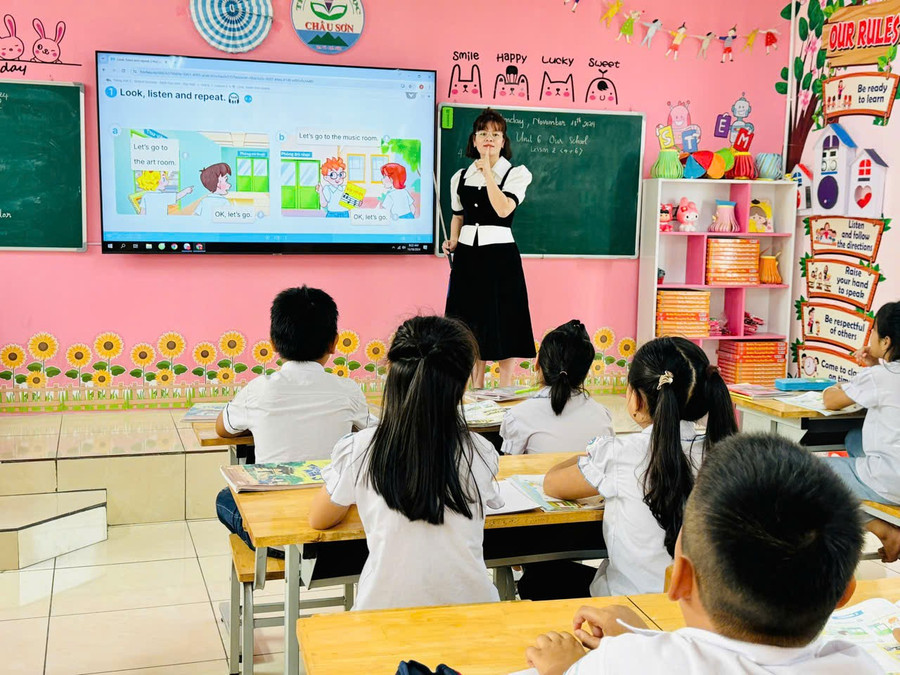
Prime Minister approves Project to make English the second language in schools
The Prime Minister approved the Project “Making English the second language in schools for the period 2025-2035, with a vision to 2045”. The Project was issued with Decision No. 2371/QD-TTg dated October 27, 2025.
The project is applied in all preschool, general education, university, vocational education and continuing education facilities nationwide. It is estimated that the project will impact about 50,000 educational facilities with nearly 30 million children, pupils and about 1 million managers and teachers at all levels, fields of study and training.
The project implementation period is 20 years (from 2025 to 2045), implemented in 3 main phases.
In particular, phase 1 (2025-2030) will build the foundation and standardize, ensuring a solid foundation for English to be used regularly and systematically in the educational environment.
Phase 2 (2030-2035) will expand and strengthen, promoting the use of English more frequently.
Phase 3 (2035-2045) will be completed and enhanced, English will be used naturally, developing an ecosystem of English use in the educational environment, communication and school administration.
Regarding resource conditions, after the Project is issued, central and local agencies and organizations subject to the Project's regulations are responsible for implementation.
In particular, for preschool level, to successfully implement the Project, there needs to be 01 position of English teacher/01 preschool education facility. Thus, it is expected that there will be an additional 12,000 positions of English teacher in public preschool education facilities nationwide.
For primary school level, to have a solid foundation and ensure the success of the Project's objectives, the Ministry of Education and Training proposes to implement compulsory English teaching from grade 1 of the General Education Program (currently compulsory from grade 3). This will create an additional staff of English teachers in primary schools across the country, approximately 10,000 more English teachers.
In addition, it is necessary to train and foster English and professional and pedagogical skills for at least 200,000 English teachers from now until 2035 to meet the needs and goals of the Project.

Vietnam and the UK sign a letter of intent on education cooperation.
On October 29, Minister of Education and Training Nguyen Kim Son had a working session with UK Minister for Skills Baroness Smith to promote education and training cooperation between the two countries in the new period. This is an activity within the framework of General Secretary To Lam's official visit to the United Kingdom of Great Britain and Northern Ireland.
At the working session, Minister Nguyen Kim Son affirmed that the comprehensive cooperation relationship between Vietnam and the UK, including in the field of education and training, is developing strongly.
Many Vietnamese students have been studying at leading universities in the UK; many joint training and research cooperation programs have been effectively implemented, contributing to improving the quality of human resources, promoting economic and social development, protecting the environment and improving public health.
The Minister expressed his gratitude to the British Government for providing many scholarships to Vietnamese officials and students, thereby creating opportunities for study and academic exchange with the world's leading advanced education system.
Referring to the future cooperation orientation, Minister Nguyen Kim Son stated that Vietnam hopes the British Government will continue to support the development of English as a second language, through the development of English teachers and teachers of specialized subjects in English. The Minister also hopes that the two sides will strengthen cooperation in training and research in new technical and technological fields, in order to develop high-quality human resources for Vietnam.
The Minister said that Vietnam is focusing on reforming the vocational education system and developing a number of key national vocational schools. Cooperation between the two countries in this field is still modest. Therefore, Vietnam hopes to learn from the UK's experience in building and implementing vocational secondary school programs, thereby improving vocational training capacity in line with labor market needs.
The Minister also expressed his hope that the two Governments would soon sign a Memorandum of Understanding (MOU) on educational cooperation, to concretize cooperation orientations, especially in the context of the Vietnam-UK relationship having been upgraded to a Comprehensive Strategic Partnership.
At the meeting, the two Ministers signed a letter of intent for cooperation, and Minister Baroness Smith respectfully invited Minister Nguyen Kim Son to attend the World Education Forum held in the UK in May 2026.
On the same day, Minister Nguyen Kim Son also joined the Vietnamese delegation led by Nguyen Duy Ngoc, Politburo member, Deputy Head of the Central Steering Committee on Science, Technology, Innovation and Digital Transformation, to visit and work with Imperial College London.
At the meeting, Minister Nguyen Kim Son proposed a number of potential cooperation directions between the two sides, such as: developing joint training programs with the same degree; establishing research centers in Vietnam, and training PhDs according to Vietnam's needs.

For the first time, there is a unified national swimming program.
The Ministry of Education and Training has issued a program and documents guiding safe swimming instruction for students. This is the first official program approved and issued by the Ministry to implement Decision No. 1717/QD-TTg dated December 31, 2024 of the Prime Minister on "Enhancing education on knowledge and skills to prevent drowning for students in the period 2025-2035".
The program and instruction materials for teaching safe swimming are issued to unify the content, help localities and educational institutions organize synchronous implementation, fully equip knowledge and skills for drowning prevention, and help students proactively protect their health and lives.
The program and materials set specific goals for students at each level. The program and materials include 16 lessons, including 15 lessons and 1 test and assessment. Each lesson lasts from 60 to 90 minutes. Based on specific conditions (weather, learning ability, physical condition, health of students), teachers flexibly apply teaching methods and allocate appropriate time for each student.
The program and guidance documents also specify the conditions for ensuring implementation in terms of facilities, human resources, documents and funding.
Regarding facilities, a fixed or assembled (mobile) swimming pool must ensure a clean water source, suitable water depth, flat walls and surface to ensure safety for students and teachers when organizing swimming lessons. The area around the swimming pool must be clean, airy, with enough space to warm up before going into the water to learn to swim. There must be minimum rescue equipment according to regulations, toilets, showers, separate changing areas for male and female students, and swimming pool rules.
Regarding human resources, swimming teachers must be trained and certified in teaching safe swimming and drowning prevention by competent authorities; have lifeguards and medical staff on duty as prescribed; have staff to clean the swimming pool area and auxiliary works.
Educational institutions are responsible for developing plans and reporting to competent authorities for approval to implement safe swimming instruction for students according to the program; and issuing safe swimming certificates to students who meet the requirements according to the content tested at the end of the course.
Source: https://giaoducthoidai.vn/nong-trong-tuan-nha-giao-duoc-huong-he-so-luong-dac-thu-thu-tuong-phe-duyet-de-an-tieng-anh-post755071.html


![[Photo] The road connecting Dong Nai with Ho Chi Minh City is still unfinished after 5 years of construction.](https://vphoto.vietnam.vn/thumb/1200x675/vietnam/resource/IMAGE/2025/11/04/1762241675985_ndo_br_dji-20251104104418-0635-d-resize-1295-jpg.webp)

![[Photo] Ca Mau "struggling" to cope with the highest tide of the year, forecast to exceed alert level 3](https://vphoto.vietnam.vn/thumb/1200x675/vietnam/resource/IMAGE/2025/11/04/1762235371445_ndo_br_trieu-cuong-2-6486-jpg.webp)
![[Photo] Panorama of the Patriotic Emulation Congress of Nhan Dan Newspaper for the period 2025-2030](https://vphoto.vietnam.vn/thumb/1200x675/vietnam/resource/IMAGE/2025/11/04/1762252775462_ndo_br_dhthiduayeuncbaond-6125-jpg.webp)
![[Photo] Ho Chi Minh City Youth Take Action for a Cleaner Environment](https://vphoto.vietnam.vn/thumb/1200x675/vietnam/resource/IMAGE/2025/11/04/1762233574890_550816358-1108586934787014-6430522970717297480-n-1-jpg.webp)

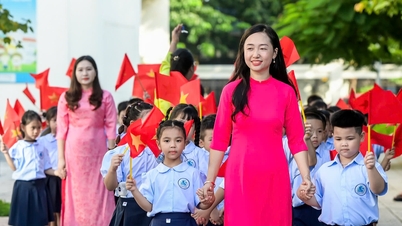




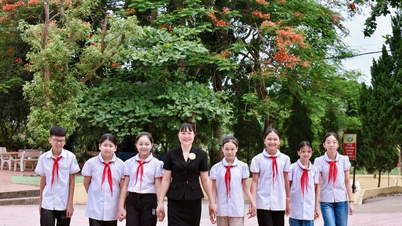
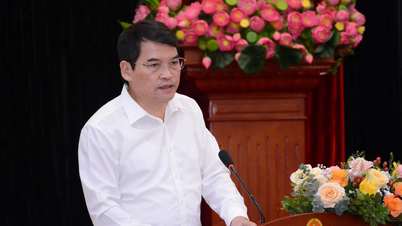




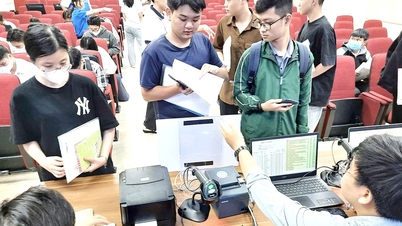

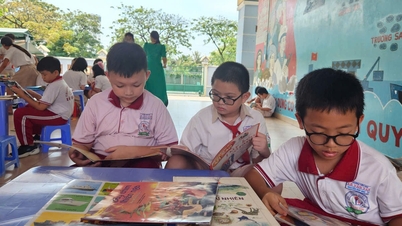






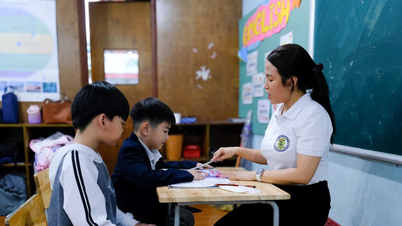
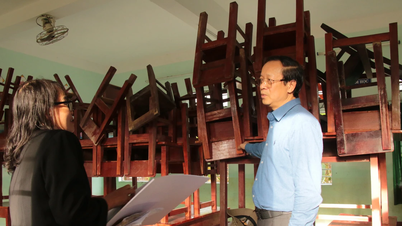


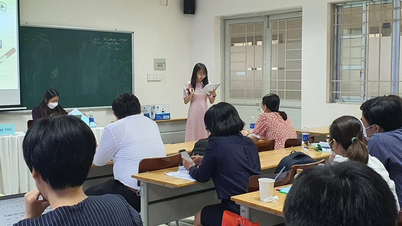
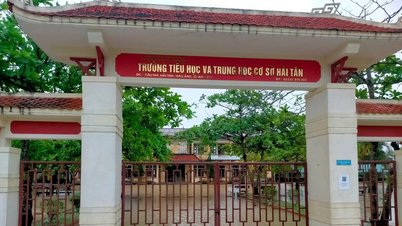

































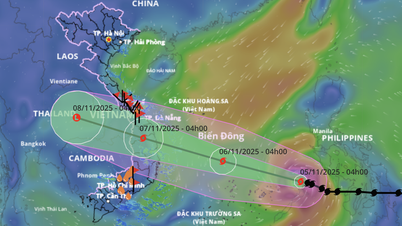




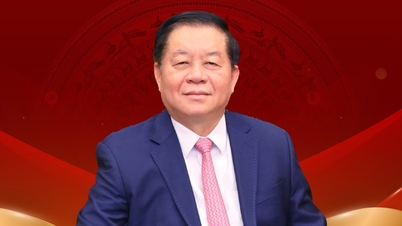











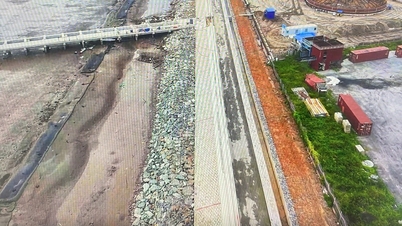





















Comment (0)